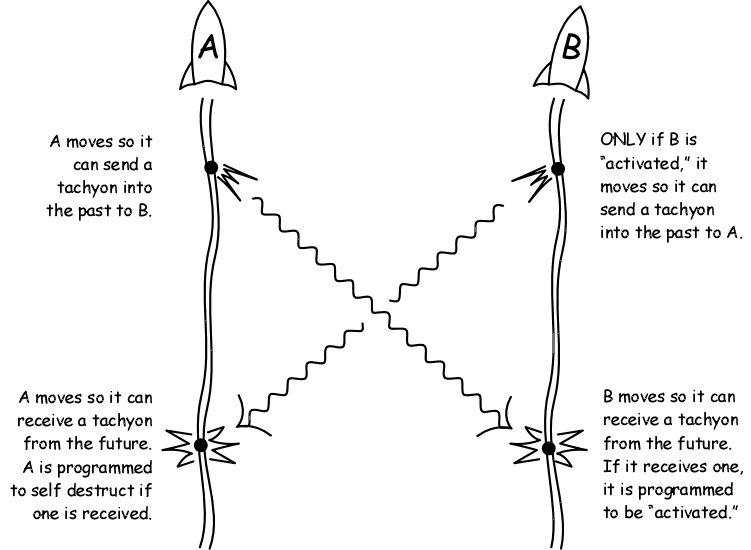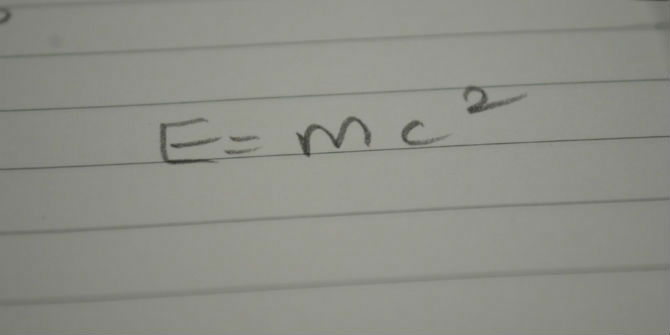Starting in September 2015, our new course, Einstein for Everyone, will provide the ideal introduction to the philosophical implications of relativity theory.
FAQ PH230 Course Guide PH430 Course Guide Contact Your Dept Tutor Sign up on LFY
Does the universe have an edge? Is time travel possible? What is a black hole, and should we be worried about experiments at the LHC creating them? The modern theory of spacetime introduced by Einstein provides a precise framework in which to ask these questions. This course makes their analysis accessible to everyone.
Students will have the opportunity to engage with Einstein’s theories of relativity, to use them to analyse philosophical problems, and to examine their philosophical and practical implications. The topics of the course will include: 1) Relativity: Slowing clocks, shrinking rods, and the relativity of simultaneity; 2) Spacetime: Thinking in 4-dimensions, faster-than-light travel, and other philosophical issues; 3) Non-Euclidean thinking: Beyond the geometry of Euclid, measuring curvature, gravity as curved spacetime; 4) Cosmology: Our place in the universe, big bang cosmology, time travel; 5) Limits of space and time: Geometry, black holes, singularities.
Students will learn to apply these conceptual tools to the analysis of space, time and gravity, as well as to formulate and argue for their own perspectives on the philosophical implications of relativity theory. One is often faced with unsubstantiated declarations about the implications of Einstein’s theories, by both scientists and non-scientists. This course will equip non-scientists with the conceptual tools needed to critically analyse these claims for themselves.
Einstein for Everyone requires absolutely no background in physics or maths. Students are only required to learn two equations, which really cannot be omitted: E=mc2, and Einstein’s equation!
Image credit: John D. Norton, Einstein for Everyone
What you’ll do
There will be two versions of this course in 2015/6: PH230, for undergraduate students, and PH430 for postgraduate students.
PH230 is available to students on our BSc in Philosophy and Economics, our BSc in Philosophy, Logic and Scientific Method and our BSc in Philosophy, Politics and Economics. The course will also be available to General Course students and as an outside option to students on other programmes where regulations permit.
PH430 is available to students on our MSc in Philosophy of Science and as an outside options to students on other MSc programmes.
This is a half-unit course, meaning that it will run for one term. Teaching will consist of 10 hours of lectures and 10 hours of classes in the Michaelmas Term (24 Sept – 11 Dec). Each lecture will introduce a different topic and you will have the chance to discuss each of these topics in class groups of no more than 15 students.
Each week, you will be given a problem set to complete as well as short discussion questions to be submitted via Moodle (the LSE’s Virtual Learning Environment). This is formative work and will not count towards your overall course mark, but is intended as preparation for the final 2 hour exam to be sat at the start of the Lent Term.
Weekly essential readings, selected individually from various book chapters and journal articles, will be provided on Moodle but if you’d like to get a head start here are some indicative readings for you to take a look at over the summer:
- Norton, John D. (2015) Einstein for Everyone
- Hugget, Nick. (2010) Everywhere and Everywhen: Adventures in Physics and Philosophy
- Einstein, Albert (1920) Relativity: The special and general theory
- Euclid (1908) The Thirteen Books of Euclid’s Elements, Vol I
- Poincaré, Henri (1905) Science and Hypothesis





Connect with us
Facebook
Twitter
Youtube
Flickr